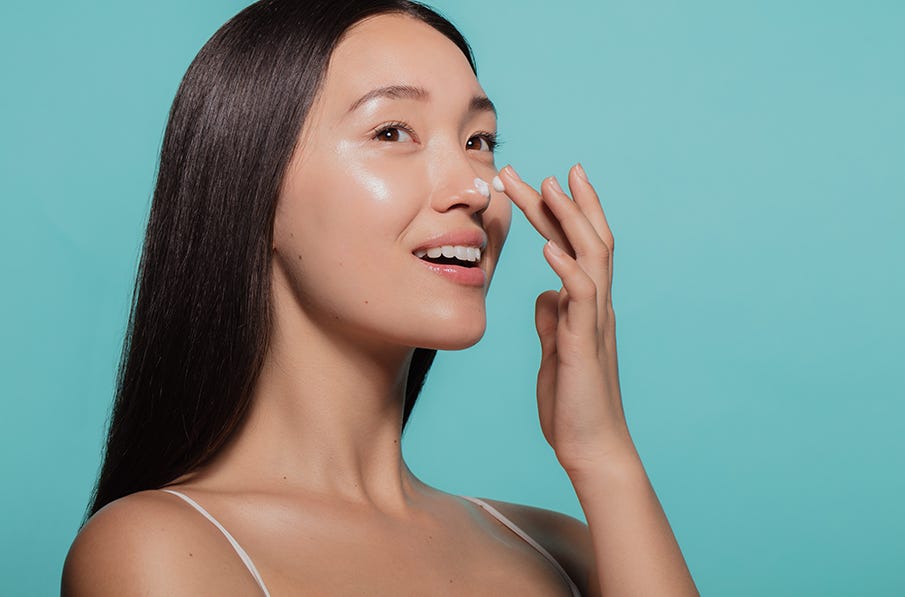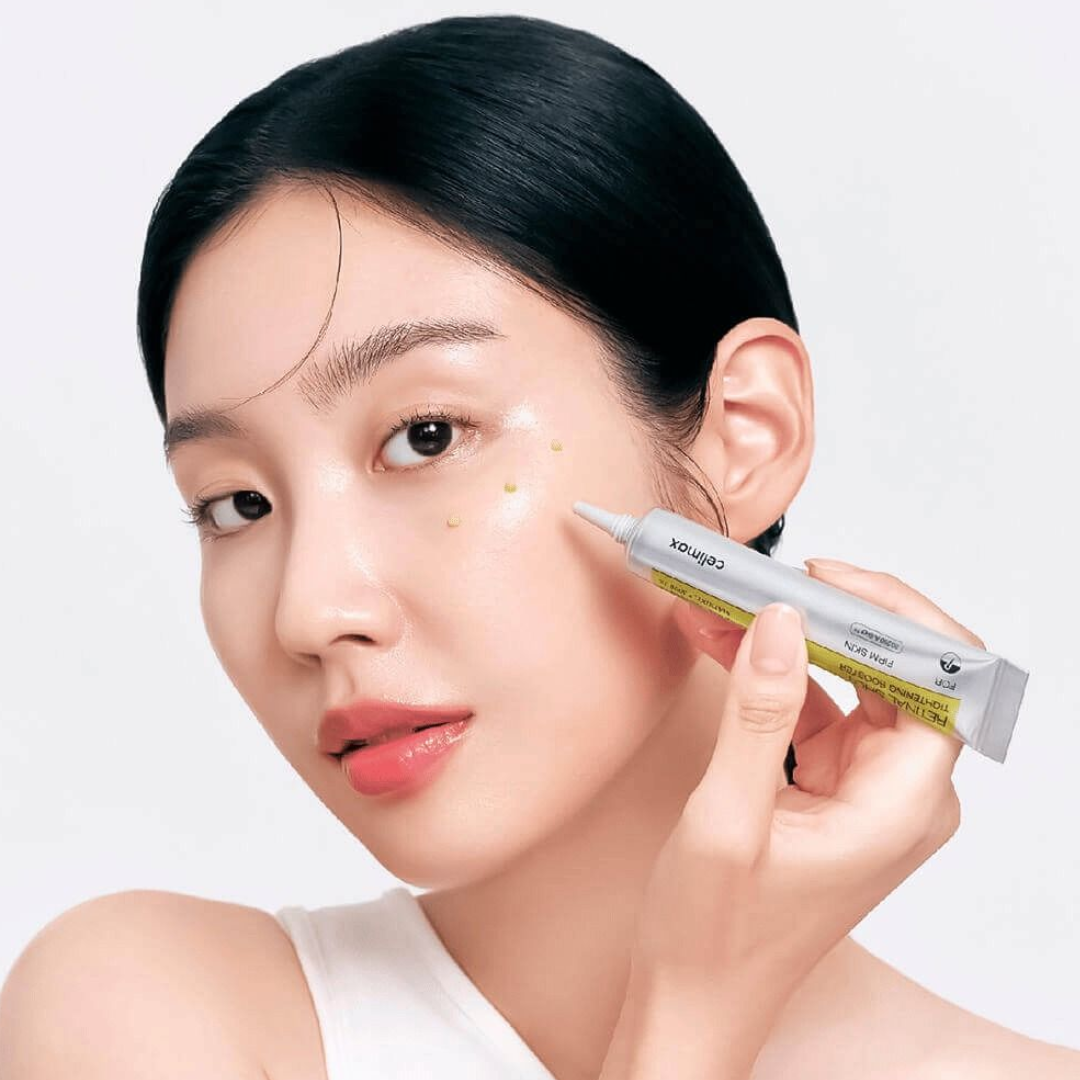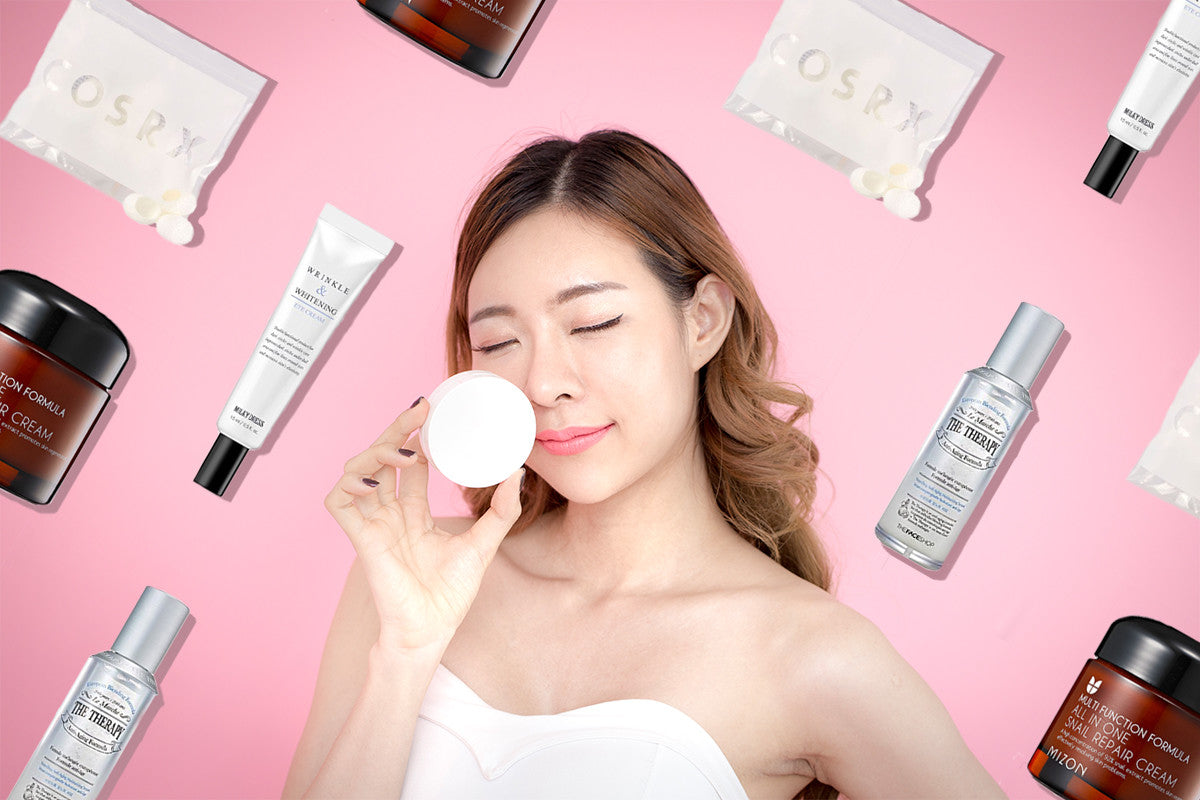8 Myths About Korean Cosmetics Debunked

Korean beauty cosmetic products have exploded in popularity in the past few years as they are readily available in the west almost on most store shelves. Most of this popularity is because of their drama serials and K-pop becoming that popular in the west. People are fascinated by the stars in these serials and movie who doesn’t seem to wear much makeup and still look so fresh and beautiful.
This natural beauty led to the Korean beauty care methods becoming popular, and with popularity, strange facts sprout as ferns like myths and legends people start believing to be true. Today we are debunking the 8 best myths about Korean cosmetics once and for all to disperse their effect so consumers can finally start using these incredible products.
1. K-Beauty Products are Only for Asian Women and Skin
Surprisingly, people believe women in different countries and ethnicities have diverse skin problems. All women, just like Korean women, face the same issues that women from the rest of the world face. Believing Stars from TV series and glossy magazines are not the same as everyday women in Korea is false. All women have skin problems related to hormones like having enlarged acne pores in a humid environment, and some have oily skins, while others have entirely opposite and dry skins.
One of the main reasons this myth could have been born is that K-beauty cosmetic products are designed for Korean women. It is designed for their skin, and that's probably why most women in the west don't immediately see the effect. They see Korean women’s glass skin: which is smooth and well hydrated, almost luminous, and translucent, and want to achieve that, and frankly, who wouldn't? That's when some of these women are disappointed if they want quick results.
Some women find great results from K-beauty products because their skin might be similar to Korean women. Korean beauty products help women worldwide get healthier skin though getting a glass skin may vary for some than others.
Another aspect that may differ is the darker skins, as they are more resistant to the sun. This resistance is mainly because of having higher melanin amounts that protect their epidermal cells from UV radiations so that some products may be too soft for darker-skinned people.
Finally, the difference between western and eastern products is also the focus of the products' primary purpose. It is not to say there isn’t much focus in Korea for that. Still, to the contrary, there is such high competition for K-beauty cosmetics that new and innovative approaches are made to improve their results, adding more safety and research to the product.
2. Sunscreens are Meant to be Used Only When Sunny
This one is not just a K-beauty product myth; it is the same in most places and countries. You should apply sunscreens every day if you know your skin is sensitive to sunlight. It doesn't matter if it's rainy or cloudy during most of the day as long it is the day; UV rays are there. UV rays reach you no matter what during the day. UVA and UVB rays are known to even pass-through clouds, damaging your skin on cloudy days. Most dermatologists recommend sunscreen when working or at home, as windows let in a lot of sunlight every day.
Some people use sunscreen to reduce the sun's damage or tone down the skin tone, but it also protects them from harmful sun exposure and keeps their skin healthy. Negative sun exposure causes not just wrinkles; it causes scars you get from acne and a substantially increased pigment count for things like freckles and moles. Though low in chance, harmful sun exposure also causes skin cancer.
For those who do care about applying sunscreen most days, you should consider adding the sun protection factor into your buying when next time getting a product. For regular usage, an SPF count of 30 is more than enough. But if you spend more time outdoors, you should consider an SPF count of 60 or higher for optimum results.
If you don’t want to use sunscreen a lot more than suggested, you can reduce the sun’s damage by avoiding going out during the strong sunny times during the afternoon. Calculate the time according to your region to prevent the most damage to your skin.
3. Using Antiaging Young Causes Your Skin to Age Faster
The use of antiaging creams has always had strange myths attached to them ever since the days it came to shelves. Most still believe these creams are for people growing old, specifically after 40 when wrinkles and age show. They think that is the most suitable time to start using the antiaging creams to start combating looking old. It is totally opposite with Koreans because they begin using the creams around the age of 20-25. Koreans do not wait for the first signs of aging or wrinkling skin. They are very proactive when it comes to health.
This proactiveness is not because of the concern of growing old and not looking your best. This care is just caring for your health. Most young people aren't bothered about wrinkles and elastic loss of their skin, so why would Koreans use these products at such an age?
You can take care of antiaging by sleeping better and smoking as little as possible for those who don't want to use antiaging creams while they are young. Some researchers believe that there isn't much evidence if these antiaging products work. These are products, after all, and not drugs. Nonetheless, the longer you take care of your skin better, the longer your skin will remain fresh and young.
4. Double Cleansing is Only Good Before Going to Bed
This misconception is common among people who have dry and normal skin as they believe washing your face in the morning is enough with a soft rub of a tonic. Our skin needs cleansing when we wake up from a good night’s rest. There is sebum produced during the nighttime from our skins that need to be cleaned. Some of this sebum is generated by the creams we apply before sleeping.
To have great-looking skin and remove as much sebum as possible in a healthy manner, you can do a balanced double cleansing by using hydrophilic oil applied with foam. You should do this application both times.
The way it works is that the cleansing lotion first breaks down the sebum that is primarily oil-based and some that are left due to the makeup we used the previous night. You can clean them by using a soft cloth. The next important step is using a face wash with water to clean any effect left by the cleanser. These two steps will leave your skin open to applying other healthier products before going to bed.
5. Cosmetic Oils Makes Your Skin Oilier for Those with Oily Skins
The simple answer to this myth is the sebum needs cleaning as only oils can dissolve this sebum. This means you need an oil-based cleanser for all the sebum you have collected during the night. Furthermore, you need to apply a good moisturizer or even an emulsion to hydrate your skin after cleansing. Evening cleansing with oil-based cosmetics also helps produce less sebum in the night.
Some consumers like to increase or maintain the matt shade of their skin. This maintenance dries their upper skin because of the use of harder drying agents. This process provokes your skin which in turn produces more sebum.
Another reason behind oilier skin is using makeup too often or using some cream products that are too heavy for your skin. These products block your pores, allowing more oil to be accumulated before they can find a release. Second, it is most important to use a hydrate even if you have combination skin.
Finally, another critical reason for more oily skin is stress. Androgen is a hormone known for oil production, which mainly fluctuates big time during pregnancy and menopause, which are further exacerbated by your stress levels.
6. Your skin type doesn’t change over time
Though the skin remains the same, the underlying characteristics of your skin define your skin type that changes from time to time. If you have gone through the careful articulation of your skincare products, it might happen to you. Just when you are comfortable with some cosmetics, your skincare products don’t seem to work efficiently, and you start seeing new problems creeping up.
The skin type changes from season to season and with growing age too. It's like at 25, your skin is excellent but suddenly becomes prone to getting issues like acne, and by 30, it starts getting drier and more extra sensitive.
In these cases, and in general, you should be observant of these changes and change your products accordingly. You should be careful when your skin is too dry or too moist, for that matter.
7. Regular Moisturizer is Sufficient for Under Eye Skin
All skincare products used to fall under this fallacy that you can use any moisturizer for the sensitive skin under your eyes. Though any moisturizer is good enough, it doesn’t work that way in reality. We understand most people don't want to spend extra for such a small area of the skin and take care of it properly, but affordable products are now readily available in the market these days.
Remember that nothing works best for your eyes other than the particular products made for those areas. Nonetheless, it is your choice and perception in the end.
8. K-beauty is full of weird Ingredients
It is actually true that K-beauty products contain ingredients that will seem strange to those in the west. Even if they are weird, their benefits have been tested over a long time, and now the west is using them with open arms and loving it. The most common weird ingredients in K-beauty are
• Snail Mucin
• Bee’s Venom
• Donkey Milk
• Pig Collagen
• Placenta
Koreans use live snails as a therapy treatment in spas for the most natural remedy, which might take some time to become popular in the west. If you feel strange and icky using live snails, then don't worry. Many Korean cosmetics come with filtered snail mucin that is non-toxic and perfectly healthy to use. They are known for repairing skin best against acne and even damages done by going out in the intense sun.
Using bee venom in Korean products is actually a neat trick. The venom makes your skin think it has been stung by a bee, which kick starts your body's protection and cleansing mechanism. This foolery encourages excellent cell regeneration and boosts the formation of collagen in your skin which makes it a natural Botox.
In the same vein, one of the biggest reasons for skin aging is the loss of proteins and fatty acids in your skin. Donkey milk has all these ingredients that replenish the youthfulness of your skin especially having five times more vitamin C than a cow's milk.
Conclusion
Most of the myths are born due to insufficient knowledge to the point that we outright bar those things from our lives. We allow chemical stuff into our lives instead of using natural ingredients if we know they have been tested and FDA approved. The underlying thought behind natural ingredients has always been their long-term health-benefiting effects. In reality, we give little time for things to take effect and let our bodies run their course. We go towards immediate effect products, so there are many myths concerning foreign beauty products.


